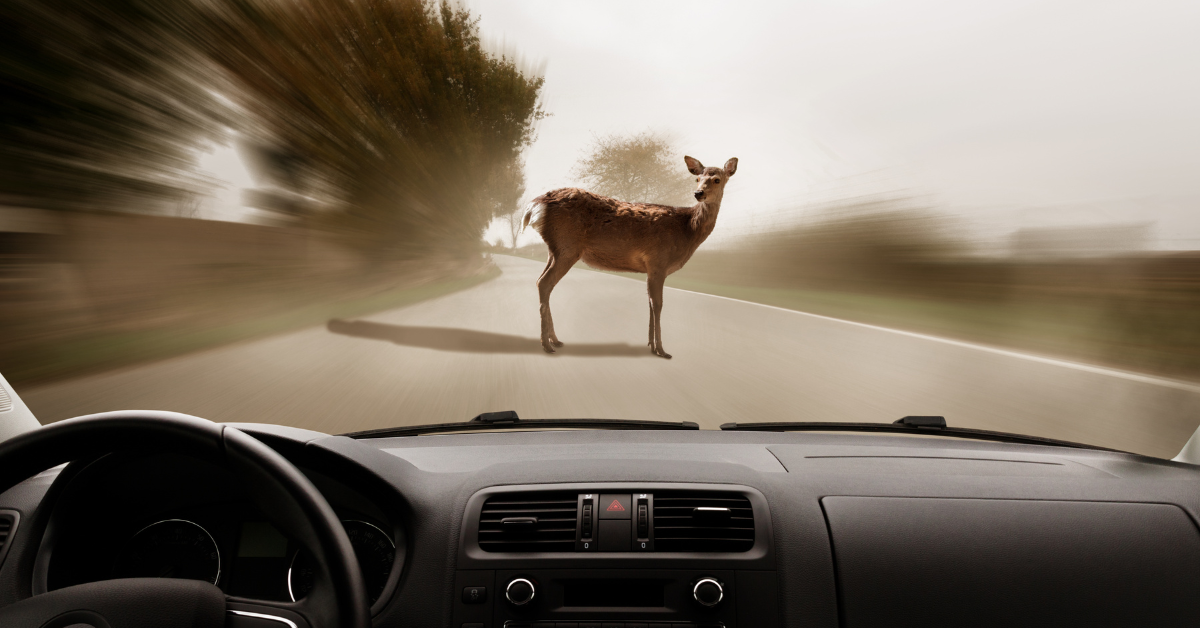Is It Illegal to Hit a Deer and Drive Off?
Hitting a deer while driving could put both you and the deer in harm’s way. It can also cause serious damage to your vehicle. But, accidents do happen, and it’s best to be prepared with an understanding of what to do if this does occur.

What to Do If You Hit a Deer
If you hit a deer, move your vehicle to a safe place on the side of the road if possible and follow these steps:
- Call the police.
- Document the incident using photos of your vehicle, the scene of the incident, any injuries, and any damage to the vehicle.
- If any witnesses stop, collect their contact information.
- Avoid getting too close to the deer.
- Contact your attorney to determine the next best steps.
After hitting a deer, you should immediately call the police. The deer could be blocking the road, causing a problem for other drivers traveling that way. Their report will also be useful when filing an insurance claim.
Additionally, the deer could be injured and in need of veterinary attention. While it is not safe to get near an injured animal, police will be able to help you contact the right people. Do not get too close to a deer after collision. It could frighten the deer, causing them to use their powerful legs and hooves to protect themselves. This could cause serious harm to you.
If anyone was injured during the incident, they should seek proper medical attention for their injuries. Don’t assume that injuries are minor. There are many factors that can impact the ability to feel how serious your injuries are after an accident including adrenaline and internal injuries, such as hitting your head.
Tips to Avoid Deer Related Car Accidents
Deer are crepuscular animals, meaning they are most active during dusk and dawn. It can be dark when they appear on the road, causing an unexpected encounter that’s harder to foresee than if it were in the daytime.
To avoid an unexpected deer-related car accident, follow these tips:
- Use your high beams when it’s safe to do so in the darker hours of the day.
- Never drive over the speed limit when it’s dark.
- Be aware of heavily wooded areas close to the road.
- Be alert of your surroundings.
- If a deer crosses the road ahead of you, assume there are more following.
- Make sure you have a safe space to hit your brakes if you need to.
Deer can travel in herds or with their babies. If you see a deer cross the road ahead of you, there is a significant chance that there could be others following. When you see a deer cross, stop where it is safe to do so, and check your surroundings to see if any more may be crossing. Drive at a slower pace when passing through that area.
Is It Illegal to Hit a Deer and Drive Off
In the state of Massachusetts, it is not illegal to hit a deer and drive off. However, there are many reasons you would want to remain on the scene after an accident. You will not be sued for fleeing the scene of an accident, but you could be sued if property damage or injury occurred. Additionally, the deer you hit could be hurt and in need of the attention of authorities. By driving off, you could be leaving an animal to suffer.
For insurance, they would want proof of your accident if it caused damage to your vehicle. Filing a claim is much harder when you flee the scene of an accident before getting proper documentation.
Salvaging Hit Deer in Massachusetts
A driver who has just hit a deer may want to take it into their possession. Additionally, a witness or someone driving by at a later time may want to do the same. A salvaged deer cannot be sold or bartered in any case. In every case, the best thing to do is contact authorities first to report your incident.
The Massachusetts Environmental Police must be notified before someone salvages a deer. Unprocessed deer need to be tagged either by the Massachusetts wildlife office or the Massachusetts Environmental Police. No provisions in the law allow drivers from other states to claim deer struck in Massachusetts.
Disclaimer
The information contained in this blog is for general information purposes only. Bonville & Howard assumes no responsibility for errors or omissions in the contents of the blog.
In no event shall Bonville & Howard be liable for any special, direct, indirect, consequential, or incidental damages or any damages whatsoever, whether in an action of contract, negligence, or other tort, arising out of or in connection with the use of this blog or the contents of this blog. Bonville & Howard reserves the right to make additions, deletions, or modifications to the contents of this blog at any time without prior notice.
